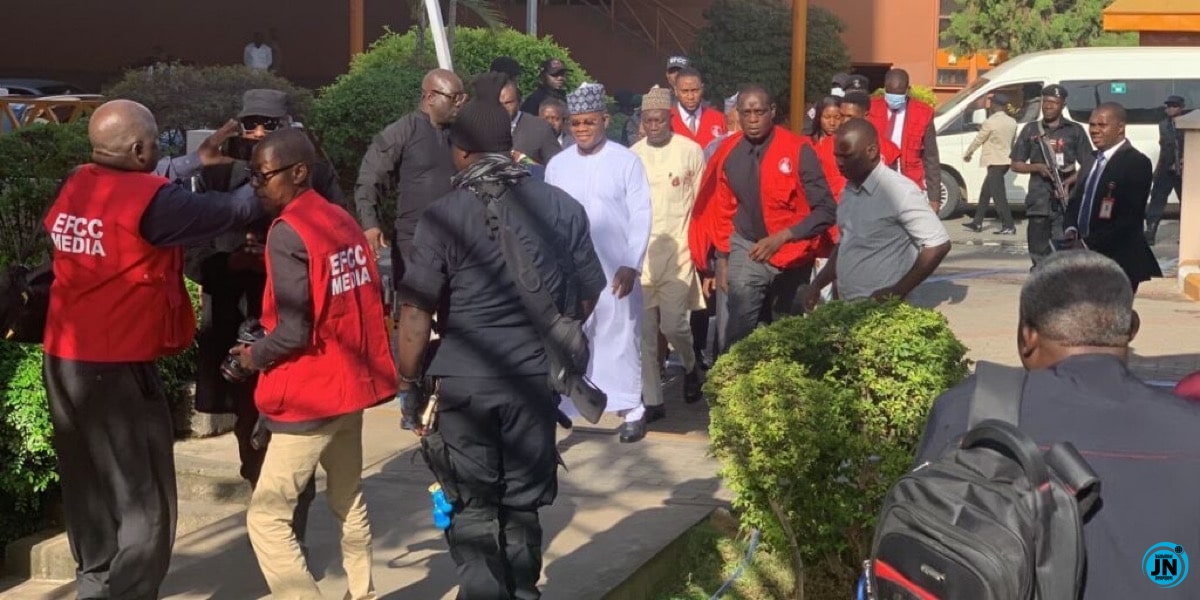
The immediate-past Governor of Kogi State, Yahaya Bello, along with his co-defendants, appeared before Justice Maryann Anenih of the Abuja High Court on Wednesday, where they pleaded not guilty to the 16-count charges brought against them by the Economic and Financial Crimes Commission (EFCC).
Yahaya Bello, as the 1st defendant, firmly denied all allegations as the court registrar meticulously read out the charges during the proceedings. The EFCC has accused Bello and his co-defendants of engaging in fraudulent activities during his tenure as governor.
Following the not-guilty pleas, Joseph Daudu, SAN, counsel to the defendants, immediately filed a formal application for bail on behalf of his client, particularly for the 1st defendant, Yahaya Bello. He argued that the defendant’s presence in court demonstrated respect for the rule of law.
However, Kemi Pinheiro, SAN, representing the EFCC, opposed the bail request. He claimed that the application had expired in October and urged the court to deny the motion. In response, Daudu clarified that the only relevant application currently before the court was the bail request for Yahaya Bello, filed on November 22.
Supporting the application, Daudu referenced several key paragraphs from the affidavit and emphasized the legal principle that a defendant is presumed innocent until proven guilty. He asserted that it is within the defendant’s rights to retain his liberty while preparing for trial. He further argued that the public summons served to Bello, coupled with his presence in court, should weigh in favor of granting bail.
“Exhibit A, which is the public summons, underscores the defendant’s willingness to comply with legal procedures,” Daudu stated. He also highlighted that using matters from another court to determine the present case was legally inappropriate. He argued that Bello had refused to appear at the Federal High Court due to unresolved jurisdictional issues, which is within his legal rights.
Pinheiro countered these arguments, stating that his preliminary objection to the bail application rested on three main points: the application’s competence, its factual content, and the judicial principles guiding such matters. He maintained that granting bail under these circumstances could undermine the prosecution’s case and that Bello’s alleged actions in other legal cases should be considered.
The EFCC had earlier indicated its readiness to commence trial immediately, with plans to call its first witness. However, Daudu requested an adjournment, citing the late service of the charges on his client on November 26. He stressed the need for adequate time to prepare a robust defense for his client.
The court also noted that two co-defendants, Umar Oricha and Abdulsalami Hudu, had been previously granted administrative bail by the EFCC. This development added to the complexity of the proceedings, as the defense argued for similar considerations to be extended to Yahaya Bello.
The case has drawn significant public attention due to the high-profile nature of the defendants and the allegations involved. The court is expected to rule on the bail application in subsequent proceedings.

